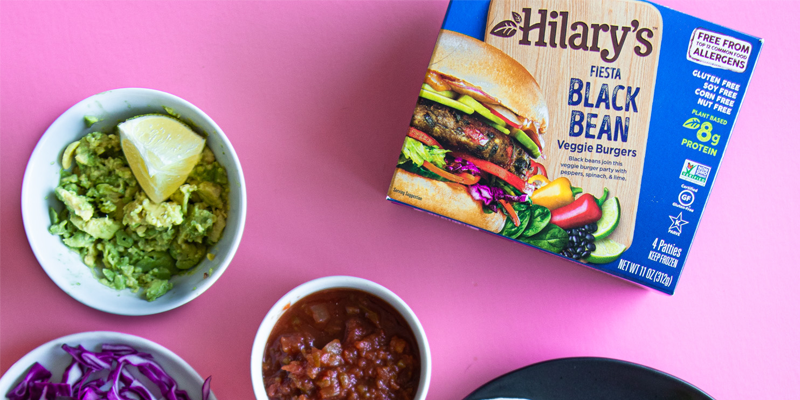Protein & Plants 101

By Rebecca Ditkoff, MPH RD CDN
What is protein?
Protein is one of the three essential macronutrients – in addition to carbs and fat– that is required as part of a healthy and balanced diet. Not only is protein an important dietary component, but it is also acts as an important substance in our bodies. In fact, protein is found in practically every cell of our body including, but not limited to our hair, nails, skin and muscles. A few main roles of protein include provision of structure, regulation and repair of the body’s tissues and organs. It is also responsible for the creation of enzymes, hormones and other body chemicals.
Protein is made from 20 different amino acids, which are best known as the building blocks of protein. A common metaphor when it comes to protein and amino acids is to think of the amino acids as toy blocks that when put together build something much bigger (i.e – a structure or in this case a protein!). Amino acids are also the building blocks of neurotransmitters. One gram of protein provides 4 calories, which is the same as carbohydrates gram to calorie ratio. This means that carbohydrates and proteins are equivalent in terms of energy supplied, however they are each metabolized and used differently in your body.
Why your body needs protein.
Protein is a jack of all trades. Since it is found in many places throughout the body it also serves many different roles. When we eat foods that contains protein, our bodies take apart the protein into the amino acids it’s made from (like you might take apart a block structure) and use those amino acids to build new proteins in our bodies that become hair, skin, muscle, or hormones.
Here are a few additional important roles of protein:
- Facilitates cell repair and growth: Protein promotes growth and repair of damaged cells and tissue for a variety of metabolic activities.
- Body regulation: Protein serves an important role in hormone regulation.
- Carries oxygen in your blood: Red blood cells contain a protein compound that assists in carrying oxygen throughout the body.
- Enzyme creation: About half of dietary protein consumed goes into making enzymes. Enzymes are responsible for aiding in the digestion of food, and making new cells and body chemicals.
How much protein does our body need?
It is recommend that adults get a minimum of 0.8 grams of protein for every kilogram of body weight per day, or about 7 grams for every 20 pounds of body weight.
- For a 150-pound person, that means about 55 grams of protein each day.
- For a 200-pound person, that means about 70 grams of protein each day.
Something important to note is that more protein in one sitting is not actually better and spreading out your consumption is key. A small study from The University of Texas Medical Branch suggests that your body likely can’t absorb or utilize more than 30 grams of protein at a time. (https://www.ncbi.nlm.nih.gov/pmc/articles/PMC3197704/)
Now you know what protein is and its role in the body, but what foods contain protein? And how should you eat it? How about animal proteins versus plant-based proteins?
Protein can be obtained from either animal-based options or plant-based options. Animal-based proteins include beef, pork, poultry, fish, milk, yogurt and eggs. Plant-based proteins come from beans, legumes, nuts, tofu, tempeh and seitan. There is common myth that plant-based proteins are inferior to those found in meat. Remember those amino acids aka building blocks I mentioned earlier? This myth relates back to them since out of the 20 amino acids there are 9 that are essential and required to make up a “complete” protein. Most plant foods (with the exception of soy, quinoa and buckwheat) are limited in either lysine or methionine (two of the nine essential amino acids). Legumes are particularly rich in the amino acid lysine, which is limited in other plant foods.
It used to be thought you need to “combine” different foods (such as grains and beans) to form a “complete protein”, in the same meal. However, we now know this old school of thought to be a myth and irrelevant since it was disproved a while ago. Instead, it is recommended to eat a variety of protein-rich plant foods in the course of your day will provide enough protein and easily fill in any amino acid gaps. (Marsh KA, Munn EA, Baines SK. Protein and vegetarian diets. Med J Aust. 2013;199(4 Suppl):S7-S10.).
To ensure adequate protein status, it is recommended that vegans or those that eat predominately plant-based eat 3-4 servings per day of legumes, which are high-protein foods that also are good sources of the amino acid lysine as mentioned above. Below is a list of options from which to choose:
- ½ cup cooked dried beans or lentils
- ½ cup tofu or tempeh
- 2-3 ounces high protein plant-based veggie meat
- 1 cup soymilk or pea milk (other plant milks are too low in protein unless they are fortified with it)
- ¼ cup peanuts (if allergic, other nuts or seeds)
- 2 tbsp peanut butter (if allergic, other nut butter or sunflower seed butter)
How Hilary’s can help you meet your plant-based protein needs:
- Hilary’s serves as a delicious and convenient plant-based option for those looking to fit in their daily servings of beans or lentils. Two of my favorite burgers are the Fiesta Black Bean Veggie Burger, which contains cooked black beans as the first ingredient and the Grain-Free Super Cauliflower Veggie Burgers, which contain lentils as the first ingredient. Both burgers contain 8 grams of high quality plant-based protein with a boost thanks to the inclusion of faba bean protein concentrate.
- If you’re interested in taste testing Hilary’s protein-specific products, Hilary’s offers this Protein Pack that can be delivered direct to door!*for qualifying shipping zones.
-----------------
Rebecca Ditkoff, MPH, RDN, CDN is a Registered Dietitian specializing in digestive health and disordered eating. Her non-diet approach to nutrition is rooted in the theories of Intuitive Eating and Health at Every Size (HAES) in which she emphasizes self-care over rigid diet rules and restriction . She is the founder of Nutrition by RD, a brand dedicated to helping people improve their relationship with food and their bodies. Rebecca also runs a virtual nutrition counseling practice from New York, NY where she works with clients one-on-one providing personalized nutrition counseling. She has been featured in a number of publications including: Women’s Health, Prevention, Forbes, Real Simple, The Huffington Post, and many more. Rebecca enjoys traveling, live music, daily trips to the dog park with her Chihuahua-mix named Winnie, and experimenting with new recipes in the kitchen.

